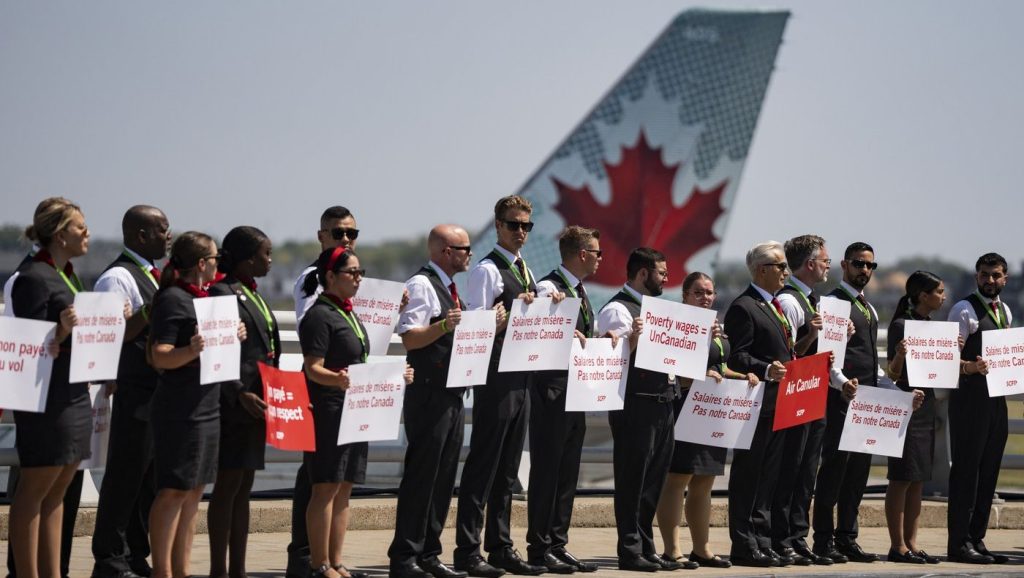As of now, there is no update regarding the status of negotiations between Air Canada and the union representing approximately 10,000 flight attendants, amid fears of a potential strike or lockout that could commence this Saturday. The Air Canada component of the Canadian Union of Public Employees (CUPE) is poised to take action as of 12:01 a.m. on Saturday, as they have the legal ability to strike following a successful vote.
The union has the capability to provide the mandatory 72-hour notice for any job action at any moment, raising concerns amongst passengers and the airline industry. As midnight has passed without any announcements from either Air Canada or CUPE, there is uncertainty regarding whether a strike notice or a lockout has been issued or if a tentative agreement has been reached to prevent a work stoppage.
Recently, CUPE conducted a vote where an overwhelming 99.7 percent of its members supported a strike mandate. This mandate grants the union the authority to strike for a period of 60 days if necessary, reflecting heightened tensions between the flight attendants and Air Canada. The union and the airline have been engaged in contract negotiations since the beginning of 2023, yet the discussions took a turn when the conciliation process ended without a satisfactory agreement.
In light of the looming strike, Air Canada has assured its customers that they will be informed about any potential flight cancellations. Passengers affected by cancelled flights will have the option to receive a full refund, which can be processed through the airline's official website or the Air Canada mobile application. This proactive communication aims to mitigate the impact of potential operational disruptions and reassure customers during this uncertain period.
On the other hand, CUPE recently rejected a proposal from Air Canada to enter into a binding arbitration process, further complicating the situation. The rejection of arbitration indicates the union's determination to seek more favorable terms through direct negotiations rather than third-party intervention.











